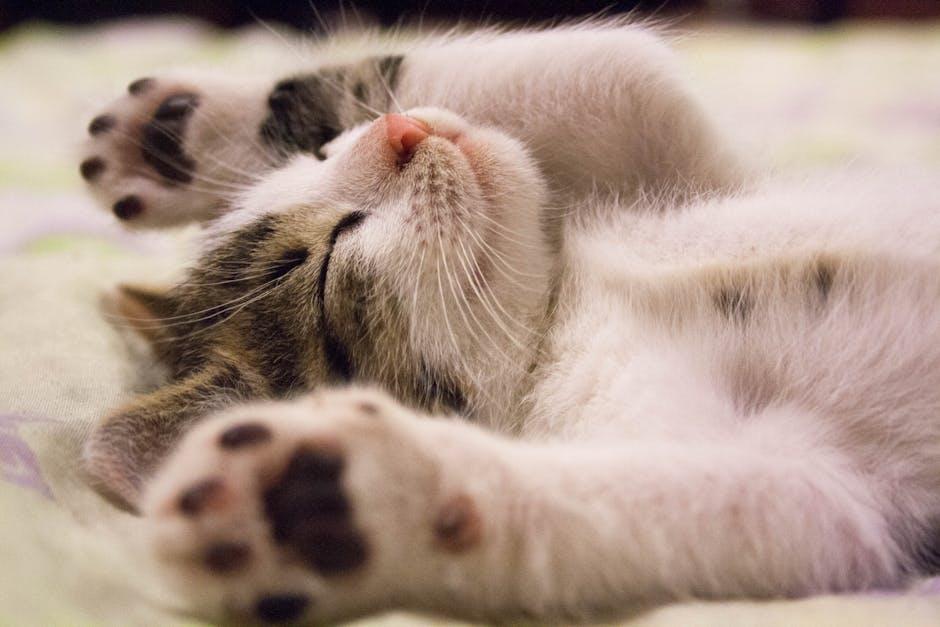In the comforting realm of our homes, where feline companions reign supreme, the concept of a “cat cage” might seem an unlikely paradox. Yet, this humble enclosure has evolved beyond its utilitarian roots, transforming into a sanctuary designed to cater to both the adventurous and the timid feline spirit. Whether it’s a temporary abode for travel purposes, a safe haven during hectic home renovations, or a nurturing space for acclimating new pets, the cat cage serves a myriad of purposes that speak to the needs and curiosities of modern cat owners. This article delves into the nuances of choosing the perfect cat cage, exploring how these structures offer not just confinement, but also comfort and security, fostering a harmonious coexistence in diverse environments. Join us as we unravel the multifaceted role of a cat cage, appreciating its part in our lives with our beloved whiskered friends.
Table of Contents
- Choosing the Right Size for Your Cats Comfort
- Exploring Different Styles and Features of Cat Cages
- Practical Tips for Maintaining and Cleaning Your Cat Cage
- Enhancing Safety and Security in Your Cats Habitat
- Q&A
- Insights and Conclusions
Choosing the Right Size for Your Cats Comfort
When selecting a cage for your feline friend, the right size is crucial for their comfort and well-being. Cats appreciate space, not just for lounging but for stretching, playing, and engaging their natural instincts. A confined environment might lead to stress or discomfort, which can affect your cat’s health and behavior.
Key Considerations:
- Height and Length: Ensure the cage is tall enough for your cat to stand comfortably and long enough to move around without restrictions. A cage that allows your cat to stretch to its full length without touching its nose or tail on the sides is ideal.
- Movement Space: Cats love to climb and jump. If possible, opt for multi-level cages or those with shelves and platforms to cater to these instincts. This will not only provide exercise opportunities but also offer space for exploration and enrichment.
Another critical aspect is the cage’s width. Calculate enough room for your cat to turn around effortlessly. This is particularly important if the cage will also house essential accessories like a litter box, food and water dishes, and possibly a cozy bed. Cluttered spaces can lead to anxiety, so maintaining a balance of space and items will keep your cat happy and healthy.
| Component | Recommended Size | Notes |
|---|---|---|
| Height | 3-4 feet | For climbing comfort |
| Width | 2-3 feet | Room for easy turning |
| Length | 4-5 feet | Sufficient stretching space |
Your cat’s personality and breed can influence the size as well. For example, larger breeds like Maine Coons will naturally require more space than smaller ones. Consider your pet’s specific needs before making a decision. By choosing the appropriate cage size, you ensure that your feline companion stays content and secure in their home away from home.

Exploring Different Styles and Features of Cat Cages
When it comes to finding the perfect haven for your feline friend, exploring the diverse styles and features of cat cages opens a world of possibilities. Whether your goal is to create a cozy corner or a dynamic playground, understanding what each type offers can help in making the right choice.
One popular option is the cabinet-style cat tree, which seamlessly combines functionality with luxury. This style often includes an elevated, cushioned sleeping box, providing a sense of security and comfort for cats who enjoy perching up high. Plus, features like wheels make it easier to move these structures around your home, ensuring your cat always has a sunny spot to nap in [[1]].
For those who require portability, consider cat cages that double as carriers. The best travel-friendly designs often boast soft, removable pads for extra cushioning during transport. This feature is particularly beneficial for trips, ensuring your cat’s journey is as comfortable as possible [[3]]. Additionally, these models generally offer ease of cleaning and maintenance, inspired by the concept of convenience without compromising comfort.
Here’s a comparative look at key features of different styles:
| Style | Key Features | Ideal For |
|---|---|---|
| Cabinet-Style | Cushioned sleeping box, wheels for mobility | Home use |
| Carrier-Convertible | Soft removable pads, easy to clean | Travel |
Ultimately, the right choice will depend on your specific needs and your cat’s personality. A luxurious stationary cage might be ideal for a stay-at-home companion, while an adaptable carrier is perfect for the on-the-go feline. Whichever you select, investing in the right cage ensures a happy, comfortable cat.

Practical Tips for Maintaining and Cleaning Your Cat Cage
Ensuring your cat’s cage remains a clean and welcoming environment is crucial for their health and well-being. To maintain this, start with a regular cleaning routine. Daily spot checks can help keep litter, food, and water areas clean. This minimizes odors and prevents the buildup of bacteria, which is essential for maintaining your cat’s health. Weekly deep cleaning schedules are also recommended to ensure that all nooks and crannies are thoroughly sanitized.
Using the right cleaning products is equally important. Non-toxic cleaners are ideal for pet cages. A mixture of water and a mild dish soap often works wonders for cleaning surfaces without leaving harmful residues. In areas with persistent stains or odors, a diluted vinegar solution can provide a natural and effective alternative. Always rinse thoroughly with water afterwards to ensure no cleaning agents are left behind.
Organizing the space inside the cage is equally important to your cat’s comfort. Consider using removable liners that make cleaning easier while also providing a comfortable surface for your cat. Arrange these liners to cover the majority of the cage’s floor, making it easy to swap out when dirty. Additionally, ensure that the cage is fitted with adequate perches or platforms, as these not only increase your cat’s living area but also help to reduce the buildup of waste by keeping bedding away from litter boxes.
| Task | Frequency |
|---|---|
| Spot Cleaning | Daily |
| Change Liners & Bedding | Weekly |
| Deep Clean | Monthly |
staying organized with cage cleaning supplies is crucial for efficient maintenance. Keep a dedicated cleaning kit close to the cage, stocked with sponges, cloths, and a spray bottle for quick spot cleanings. Having these tools readily accessible makes it easier to maintain a sanitation schedule and promotes a clean, healthy living space for your feline friend.

Enhancing Safety and Security in Your Cats Habitat
Creating a secure environment for your feline friend involves more than just providing a place to sleep. With the right design and materials, your cat’s habitat can become a haven of safety and comfort. Start by choosing a cage with a sturdy construction, ensuring it has strong materials that withstand any playful antics. Look for designs featuring easy-access multi-level arrangements, which not only enrich playtime but also enhance safety by keeping cats engaged and satisfied [[1]].
Beyond the basic structure, consider the internal layout of the cage. Cats love to explore, and a habitat that includes varied textures and interactive elements can keep them mentally stimulated. Install shelves or tunnels that allow them to climb and hide, satisfying their natural instincts while promoting their physical health. A habitat that mimics their natural environment reduces stress and promotes a sense of security.
| Feature | Benefit |
|---|---|
| Multi-Level Design | Enhances play and encourages physical activity |
| Sturdy Materials | Ensures longevity and withstands activity |
| Secure Latches | Keeps the cage safely enclosed |
Lastly, don’t forget about the comfort of your cat within their habitat. Include soft bedding or pillows that are easy to clean, ensuring they’re not only comfortable but also free from potential allergens. This thoughtful approach not only prioritizes safety but also comfort, making your cat feel at home in their personal sanctuary.
Q&A
Q: What is the best location to place my cat’s cage at home?
A: The ideal spot for your cat’s cage is a quiet and comfortable area where your cat can feel safe and relaxed, away from the hustle and bustle of daily household activities. It should be positioned away from direct sunlight and drafts. Consider placing the cage at eye-level to reduce stress and encourage interaction between you and your pet.
Q: How can I make my cat’s cage more comfortable and engaging?
A: To create a cozy and stimulating environment in your cat’s cage, equip it with soft bedding, cat-safe toys, and scratching surfaces. Adding a hideaway or small box where your cat can retreat to will provide a sense of security. Make sure to include a water bowl and, if possible, ensure that the cage is placed near a family room to keep your cat feeling connected with the household.
Q: How do I introduce my cat to its new cage without causing stress?
A: Start by placing the cage in a familiar area and leave the door open, encouraging your cat to explore it gradually. Place some favorite toys or treats inside to draw your cat in voluntarily. For additional comfort, you might include a blanket that already carries your cat’s scent. Allow your cat to get used to the idea gradually, rewarding curiosity and comfort with positive reinforcement.
Q: How can I manage a cat that insists on scratching the cage walls?
A: Cats may scratch the walls of their cage due to boredom or stress. To mitigate this, ensure your cat has ample mental and physical stimulation by providing various toys and rotating them regularly. If your cat continues to scratch, it might be helpful to let them out of the cage more frequently, ensuring the room is “bunnyproof” or cat-safe as mentioned in other pet settings [[2]].
Q: Should my cat’s cage be used as a permanent living space?
A: A cage should not be used as a permanent living space for your cat. Cats require freedom to roam and explore for their mental and physical health. Cages should primarily serve as temporary homes during travel or rehabilitation after medical treatment. Regularly allow your cat to explore outside the cage in a safe and controlled environment to ensure their well-being.
Insights and Conclusions
the journey of finding the perfect cat cage is not just about selecting a functional piece of equipment; it’s about creating a safe and comfortable haven for your feline friend. Whether it’s for travel, temporary confinement, or simply providing a cozy retreat for your cat, choosing the right cage can greatly enhance their well-being and your peace of mind. By considering your cat’s specific needs and preferences, and doing some research on the various styles and features available, you can ensure that your choice will be both practical and enriching. Remember, your cat’s cage is more than just a tool—it’s an expression of your love and care for your furry companion. As you move forward in your shared life, may you find the perfect balance of freedom and security within those bars, enriching the bond with your beloved pet.







0 Comments